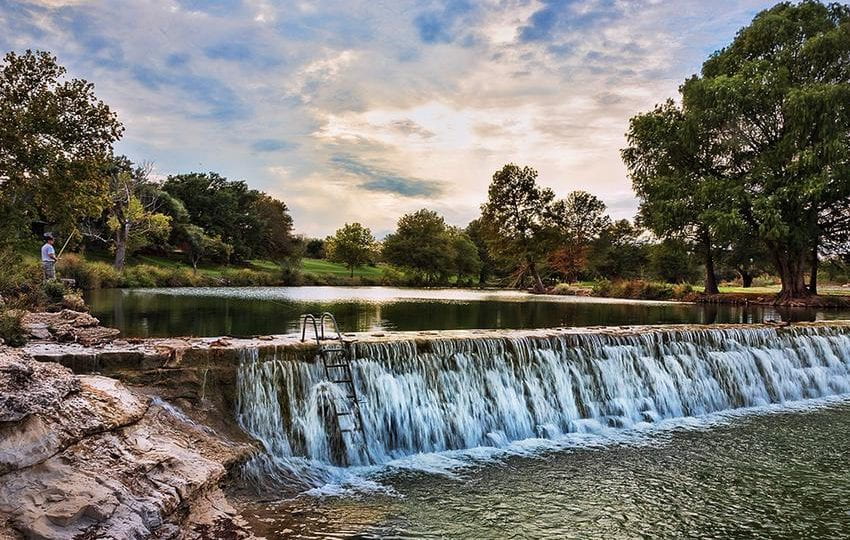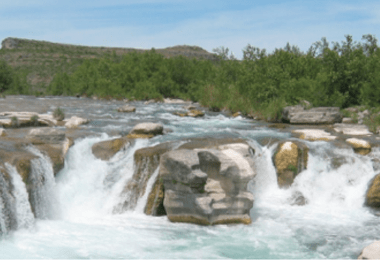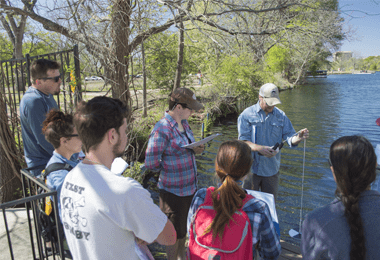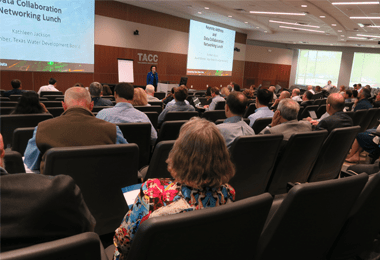Earlier this month, during a special session of the Texas Legislature, the Texas Capitol flooded. After the water stopped cascading down the pink granite walls inside the Capitol extension, the Legislature resumed its deliberations. The August flood was preceded by February’s Winter Storm Uri. Between 200 and 700 Texans died in the cold and dark after days without power and, in some places, without water. According to the Electric Reliability Council of Texas, the electric
Category: Features
Texas Water Research Network: Improving Connections Between Science & Policy
Water is critical to health and prosperity of the people and environment of Texas. Sustainable management of water resources necessitates forecasts of how water supply and demand may change in response to factors such as rapid population growth, technological innovations, and global climate change. While the state of Texas has one of the most progressive approaches to water planning in the nation, much of the water planning throughout the state is based on a short-term, rear-view mirror approach
Read More >> Texas Water Research Network: Improving Connections Between Science & Policy
Texas Stream Team: A Place for Citizen Scientists, Water Enthusiasts and River Rubberneckers
Picture yourself heading out to face the day. There may be that one special creek you pass over that prompts you to tap the brakes and turn your head to catch a brief glimpse of it. In turn, you remember to take a deep breath. Is the creek full… dry… raging… steady… healthy… or there at all anymore? You, my friend, are what we like to call a river rubbernecker. Would you like to get
Cultivating Stewardship Through Nature Exploration
In 2017, I was named Chief Education Officer at The Meadows Center for Water and the Environment, overseeing educational and research efforts within the educational program at Spring Lake. I have over 25 years of experience developing, teaching and leading outdoor education experiences in informal and academic settings. One of the reasons I am so excited to come back to Texas after many years in the Southeastern United States, is the opportunity to work with
Read More >> Cultivating Stewardship Through Nature Exploration
Connecting Texas Water Data Workshop
Texas’ public and private companies, organizations, and agencies have collected water data for different purposes and at different scales for many years. These data are scattered across multiple platforms with different standards, often making important data sets inaccessible or incompatible. This leaves Texas’ decision makers, industries, landowners, and communities with significant amounts of data of limited use to support real-time decision making, development of opportunities for water security, or for modeling an accurate picture of





